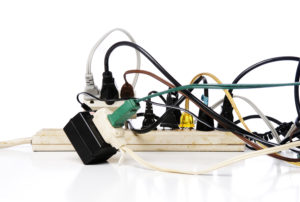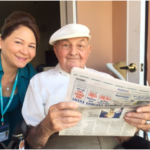Establishing Boundaries Before Your Elderly Loved One Moves in With You
Home Care Services Deerfield Beach FL
There may come a time in your caregiver journey with your elderly parent when it becomes desirable or even necessary for them to transition into your home. This can happen for many reasons. Your parent may be suffering from physically limitations and challenges that are too great for them to manage moving around their home safely and independently. They may have developed cognitive decline that keeps them from being able to remain independent while still taking care of themselves. They may no longer have an emotional support system in their current living area due to the loss of friends and family members. They may simply want to be closer to your family and enjoy the benefits of living in a multigenerational home as they age in place.
Whatever the reason behind them wanting to make this change, if your aging loved one is going to transition into living with your family it is important that is done in a way that is respectful to everyone involved. By preparing ahead of time and establishing boundaries, you can ensure that the move is one that is beneficial to everyone in the family, rather than one that may cause discomfort.
Use these tips to help you create boundaries that will allow the entire family to live comfortably and happily together as your parent ages in place:
- Living space. When your parent moves into the home it should be clear what space is theirs. This should include a private sleeping area that is separate from other areas of the home so that they have privacy and do not feel as though they are impeding on the activities of anyone else. Make sure that they know which bathroom to use, which areas of the home are common grounds, and which areas of the home are kept private to specific members of the family.
- House rules. Every home has rules and they should apply to everyone living in the home, including your elderly parent. Go over these house rules with your loved one before the move to prevent any uncomfortable moments or others feeling discouraged because they are held to standards that are not being upheld.
- Care boundaries. The most important discussions that you will have when your elderly parent moves into your home will revolve around who will care for who, and how often. Simply because your parent is making the transition into living in your home with you and the rest of your family does not mean that you need to be responsible for all of their care. If your parent will need personalized care and support while they are living in your home and you are not planning on being the sole provider of that care, consider a home care provider. This in home senior care services provider will be able to come into your home and offer personalized care for your loved one. Likewise, do not automatically assume that your parent is going to be a built-in babysitter for your children. Discuss whether you will expect your parent to help care for your children, how much they would offer in this care, and what parenting style and guidelines they must stick to.





 Home Health Care Plantation FL
Home Health Care Plantation FL






